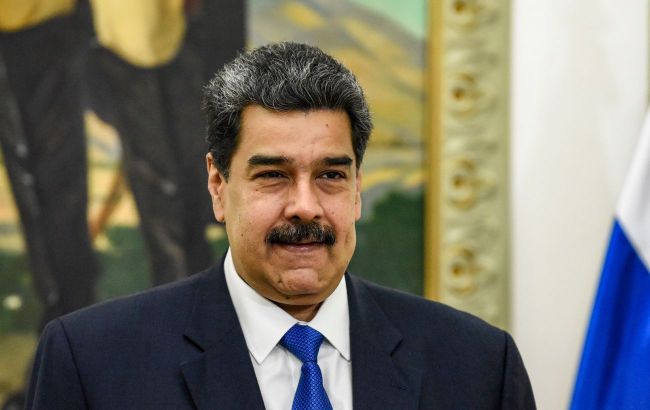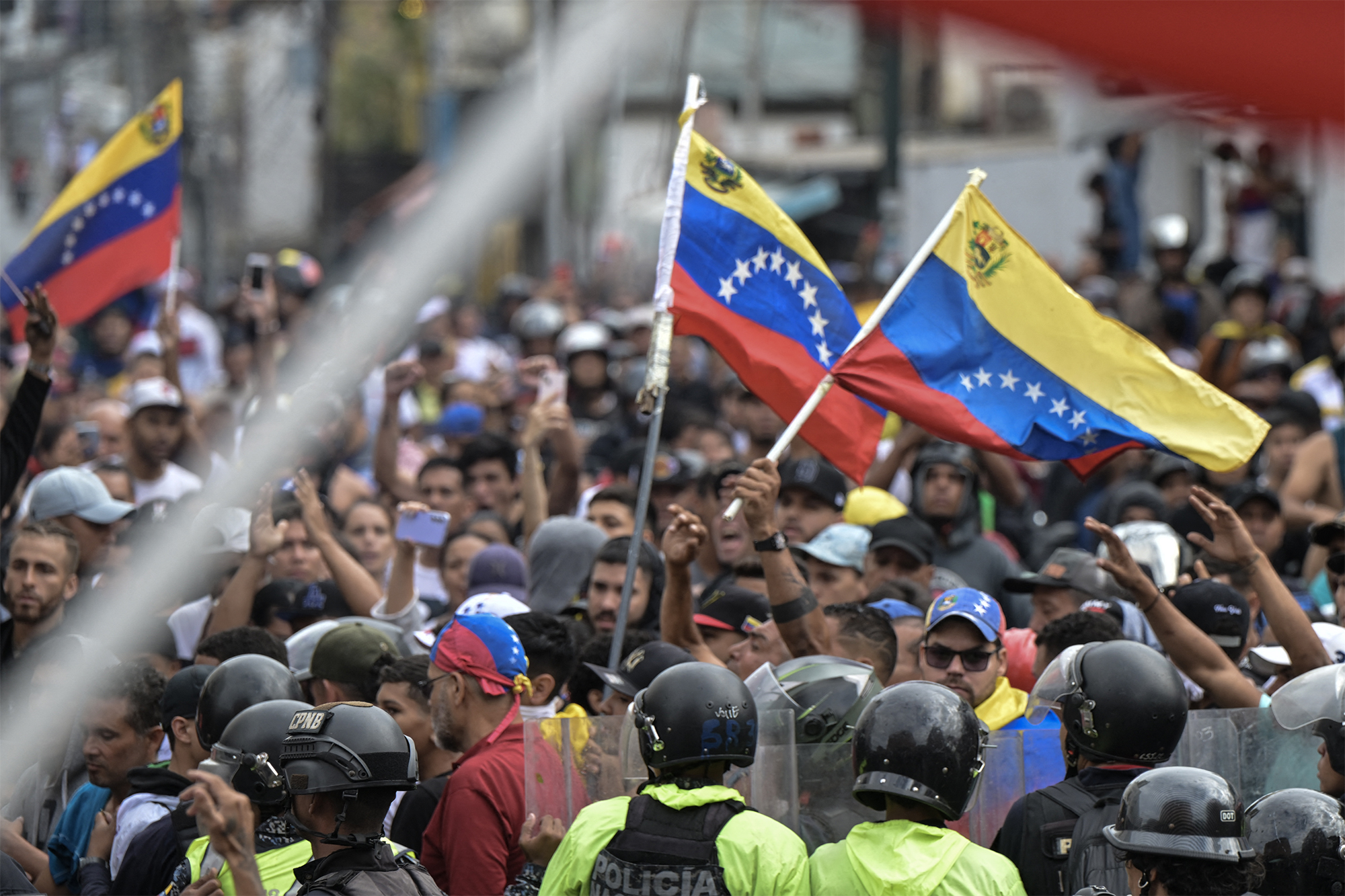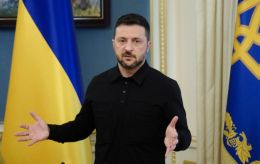Venezuela in flames: Why protests erupted and will Putin's ally stay in power
 Nicolás Maduro (photo: Getty Images)
Nicolás Maduro (photo: Getty Images)
Venezuela has been engulfed by mass protests following the presidential elections. How the situation is unfolding, what lies behind the political crisis in this Latin American country, and whether pro-Russian Nicolás Maduro has a chance to retain his power again – read the material by RBC-Ukraine.
In Venezuela, tens of thousands of protesters took to the streets following the announcement of the presidential election results. Incumbent President Nicolás Maduro declared victory with a narrow margin over opposition leader Edmundo González.
The opposition, on the other hand, alleges election fraud, as pre-election polls showed vastly different results, and is preparing for a show of force. The country's authorities have deployed tear gas and rubber bullets. There have already been fatalities and injuries among the protesters. This marks a new escalation in the political confrontation that has been simmering in Venezuela for several years.
Contents:
- Underlying causes of the crisis in Venezuela
- Barbados Agreement and Maduro's tricks
- Opposition and its lessons from past failures
- International reaction and who might influence Maduro
Underlying causes of the crisis in Venezuela
Venezuela is a country in northern South America with some of the largest oil reserves in the world, but in recent years, it has experienced a profound economic, social, and political crisis.
Since the beginning of the 21st century, the country was led by President Hugo Chávez, a former military officer who won elections with promises to allocate a significant portion of oil revenues to social spending. This policy provided him with widespread popular support for a long time. He even sought to position himself as a regional leader in Latin America with the backing of Russia and China.
However, Venezuela was experiencing systemic crises. This is often the case when oil revenues are not invested in modernizing the country but are instead "wasted." Moreover, the country was under international sanctions. The true extent of the crisis became apparent after Hugo Chávez's death in 2013 from cancer.
The new president was Nicolás Maduro, a long-time ally of Chávez and a former bus driver. During his tenure, Maduro failed to modernize the country or pull it out of the socio-economic abyss. Due to economic collapse, record inflation, and shortages of even basic goods, about 8 million citizens left Venezuela.
Despite this, Maduro has managed to hold onto the presidency repeatedly, though he has never fully overcome the opposition.
Barbados Agreement and Maduro's tricks
In October of last year, Maduro's government and the opposition, with mediation from the United States, signed what is known as the Barbados Agreement. Under this agreement, some sanctions were lifted from Venezuela, including permission to export oil to the US. In return, Maduro committed to holding democratic elections.
While the sanctions were indeed lifted, Maduro began to manipulate the situation. On one hand, he used administrative resources to block opposition leader María Corina Machado from the Unified Platform coalition and her second-in-command, Corina Yoris, from participating in the elections. Only on the third attempt did the opposition manage to register a less charismatic former diplomat, Edmundo González, as their presidential candidate.
Simultaneously, Maduro attempted to rally his own electorate through "patriotic fervor," by claiming sovereignty over the disputed territory of Guyana-Esequibo, located east of Venezuela. These actions nearly led to an open armed conflict with Guyana but did not significantly aid the Venezuelan president.
Ahead of the presidential elections, most polls indicated that the opposition leader would receive between 55% and 70% of the vote. Official results, however, showed Maduro winning with 51% compared to 44% for Edmundo González.
Opposition and its lessons from past failures
During the protests, opposition forces are presenting a united front.
"María Corina Machado is, in fact, the opposition leader whose charisma unites and drives the process forward. It is from her that the most radical statements come, aimed at consolidating society. Edmundo González is recognized by the opposition as the president who won the elections. Although he is less charismatic, he also plays a role," says Ivan Fechko, an expert on Latin American studies from the Ukrainian Prism Council on Foreign Policy, to RBC-Ukraine.
According to Fechko, the opposition has learned from its previous, unsuccessful attempt to remove Maduro from power in 2019.
"Back then, the parliament declared Juan Guaidó as interim president, but the situation was such that the opposition failed to fully demonstrate its unity, leading to conflicts and disagreements that Maduro exploited to navigate out of the situation. For now, the opposition leaders are united," emphasizes the expert.

Protesters in Venezuela (Photo: Getty Images)
However, it's too early to write off Maduro. Especially since he still has influential forces behind him.
"Maduro is currently relying on part of the elite. The key question is whether he can convince them and demonstrate that he can hold on, as the situation is very precarious. And, of course, the stance of the military will be crucial, as it is traditionally considered supportive of Maduro. For now, the situation with the protests is being controlled by the government," says Fechko.
International reaction and who might influence Maduro
Several countries in the region have already declared they do not recognize the election results, including Argentina, Chile, Peru, Costa Rica, Panama, the Dominican Republic, and Uruguay. In response, Venezuela's Foreign Ministry recalled its ambassadors from these countries.
It’s not surprising that Maduro’s long-time allies—Russia, China, Iran, Serbia, and the socialist regimes of Bolivia and Nicaragua—immediately recognized the results.
Other countries have taken a wait-and-see approach, demanding confirmation of the election results. The stance of the United States is particularly significant, given its import of a substantial portion of Venezuelan oil.
"The key question now is whether the Biden administration will be willing to risk implementing sanctions ahead of a challenging election year at home, as these sanctions would undoubtedly lead to higher oil and gasoline prices. This could negatively impact the election race between Kamala Harris and Donald Trump," notes Ivan Fechko.
Additionally, sanctions from the US would lead to further strengthening of China’s position in Venezuela, which would clearly not benefit Washington.
Much also depends on Brazil—the most powerful country in the region and Venezuela’s neighbor.
Currently, Brazilian President Luiz Inácio Lula da Silva is notably avoiding comments on the protests. However, a phone call between the leaders of Brazil and the US regarding Venezuela is expected soon.
"While Brazil has emphasized the need for fair and transparent elections, it is apparent that this maneuver is intended to keep open the possibility of negotiating with Maduro, offering compromises, and seeking solutions," the expert concludes.
The new political confrontation is just beginning, and both sides have a chance of succeeding. Regardless, Venezuela is likely to remain a source of instability for some time to come.
Sources: reports from news agencies EFE and Reuters, statements from Venezuelan politicians from open sources, and comments from Ivan Fechko, an expert on Latin American studies from the Ukrainian Prism Council on Foreign Policy.

